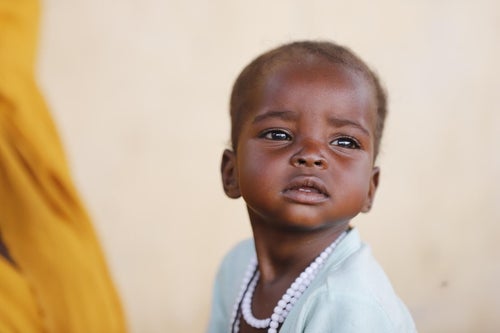Bangladesh is a vibrant country, full of music, dance and festivities. Sadly, it can be an extremely challenging place for children to grow up, with poverty, natural disasters, and health crises making daily life a struggle. The country, which it’s about two-thirds the size of the state of Victoria, is home to more than 170 million people and one of the most densely populated places in the world.
Australia's most decorated Olympian and UNICEF Australia Ambassador Emma McKeon recently visited Bangladesh with us to see UNICEF's work in action. She described her experience as "eye-opening" and highlighted the life-changing impact this work can have on children’s lives.
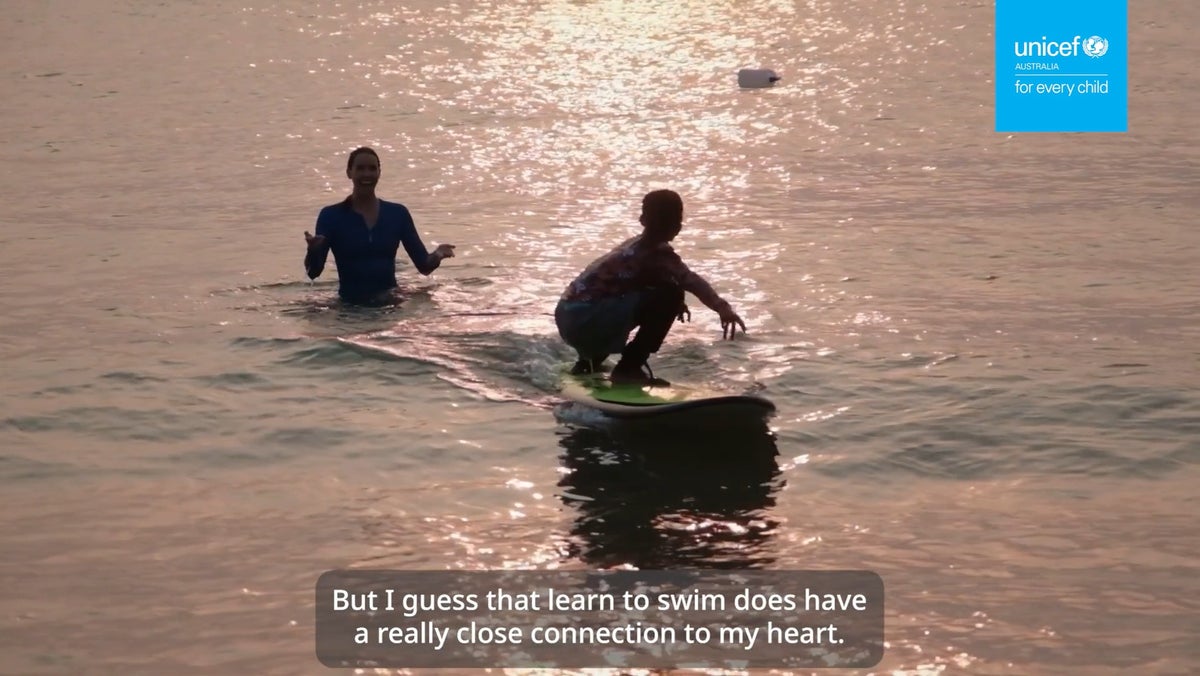
A ripple effect: Emma McKeon in Bangladesh
SwimSafe: turning fear into lifesaving skills
While in Australia, the majority of us learn to swim at a very young age, in South Asian countries drowning is one of the leading causes of death among children and adolescents. In Bangladesh, where large areas of land remain submerged due to recurring floods, more than 15,000 children lose their lives every year due to drowning – that's more than 40 children every day.
Not far from the capital Dhaka, Emma visited a SwimSafe program, where she saw how UNICEF is working with local partners to help turn fear into lifesaving skills. Because every child deserves to be safe.
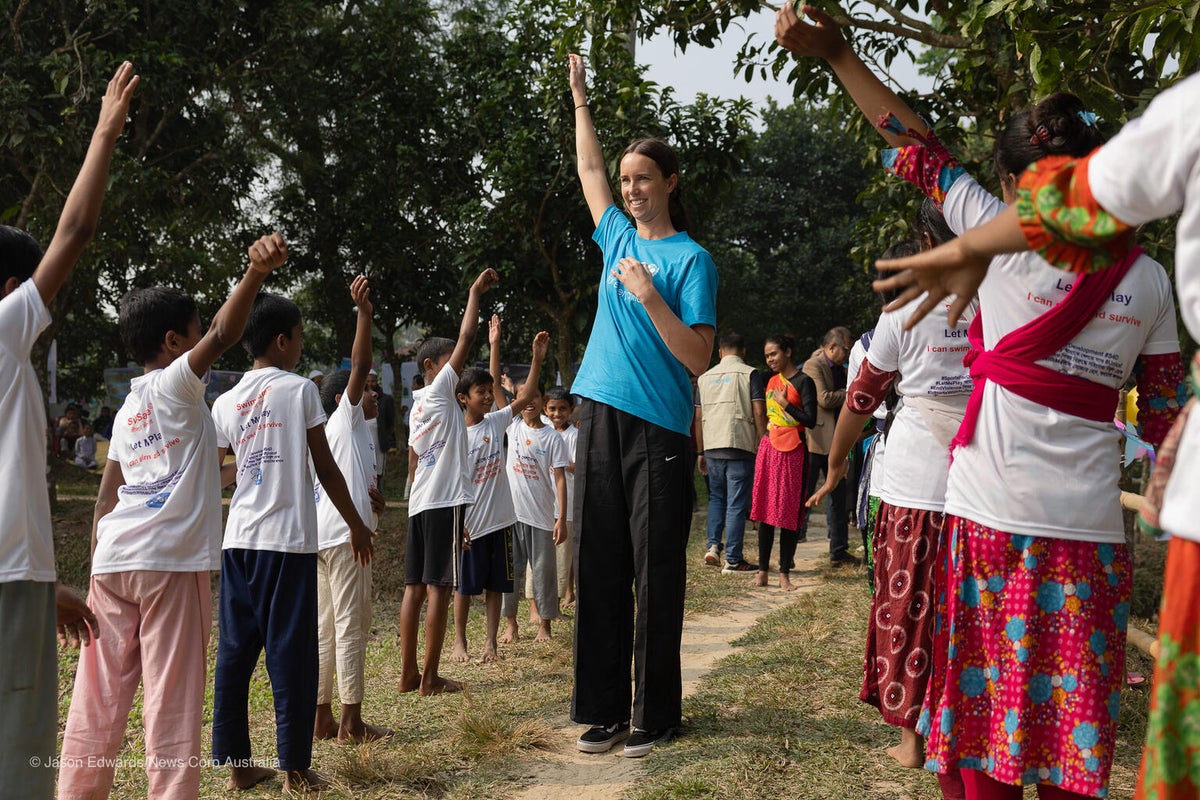
Mim, who shares Emma’s passion for the water, is a 20-year-old swim instructor at the SwimSafe program supported by UNICEF, in Gazipur, Bangladesh. After her young brother nearly drowned twice, she became passionate about teaching other children how to swim. Mim learnt how to swim from her father, who sadly passed away when she was still a little girl. "My dream is to continue swimming, and I also want to join the Navy”, Mim says.
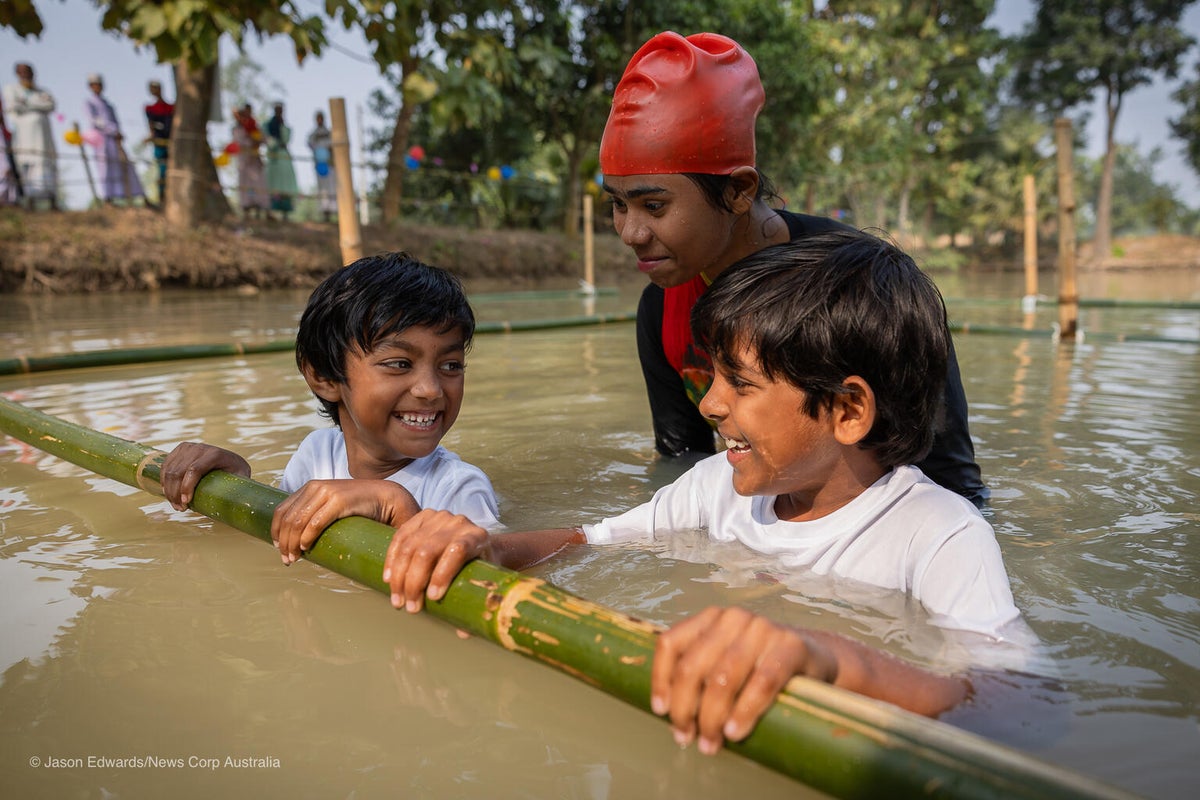
"I feel so happy teaching children how to swim. People in the community love and respect me for working with swimming."

SwimSafe programs like this one, provides training to children and adolescents across Bangladesh, by incorporating swimming as an essential life skill for school students, addressing lack of girls' access to swimming and sports, and promoting swimming as a sport in the country.
"[This program has] a really close connection to me and how I've spent my life. In Australia, we have a huge amount of access to learn to swim, and so many children here don't."
Rohingya girls: hopes and dreams in an uncertain future
Despite its own challenges, Bangladesh hosts over 1 million Rohingya refugees, half of them children, who fled Myanmar following the escalation of conflict in 2017. With over 400,000 school aged Rohingya children living in the world’s largest refugee settlement, in Cox’s Bazar, southern Bangladesh, UNICEF and partners are running a massive education program in the camps.
To ensure safe, equitable, and quality education for Rohingya refugees, UNICEF supports learning facilities, trains over 7,000 facilitators and teachers, and provides teaching and learning materials to children like Noor and Husnama.
Despite the uncertainties and challenges they face, the girls who are currently in Year 8, shared their hopes and dreams for the future with Emma.
"When I grow up, I want to be a teacher. There are not many female teachers in the camp and if there were more, maybe more girls would continue their education."
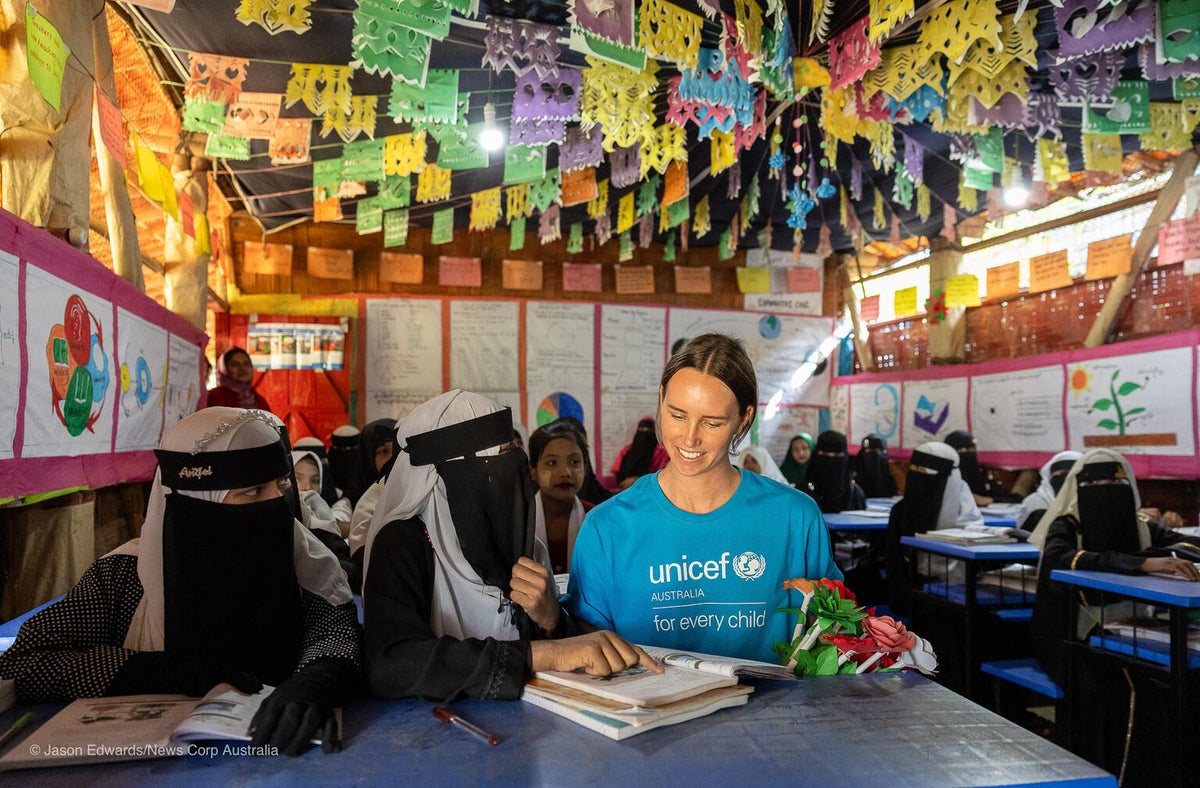
"When I grow up, I want to be a lawyer. Because if there was a lawyer in the camp, they could fight for us, and we could go back to Myanmar."
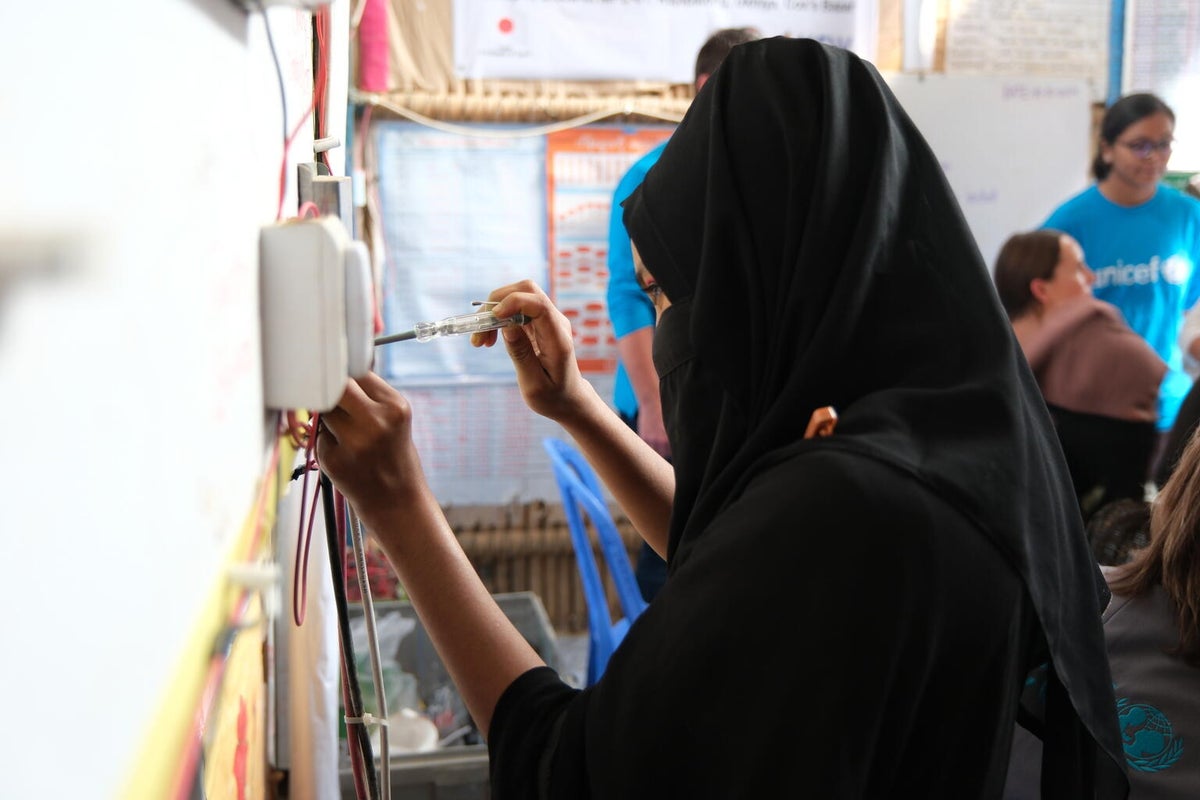
Emma also visited a multi-purpose centre (MPC) in the Rohingya refugee camp in Cox’s Bazar, to see how UNICEF provides comprehensive child protection programs that ensure children, families, and communities have access to a range of quality services. The MPC operates as an integrated service hub, providing case management services, psychosocial support, and practical skills (including solar panel technology).
Around 200-250 children participate in these activities every day.
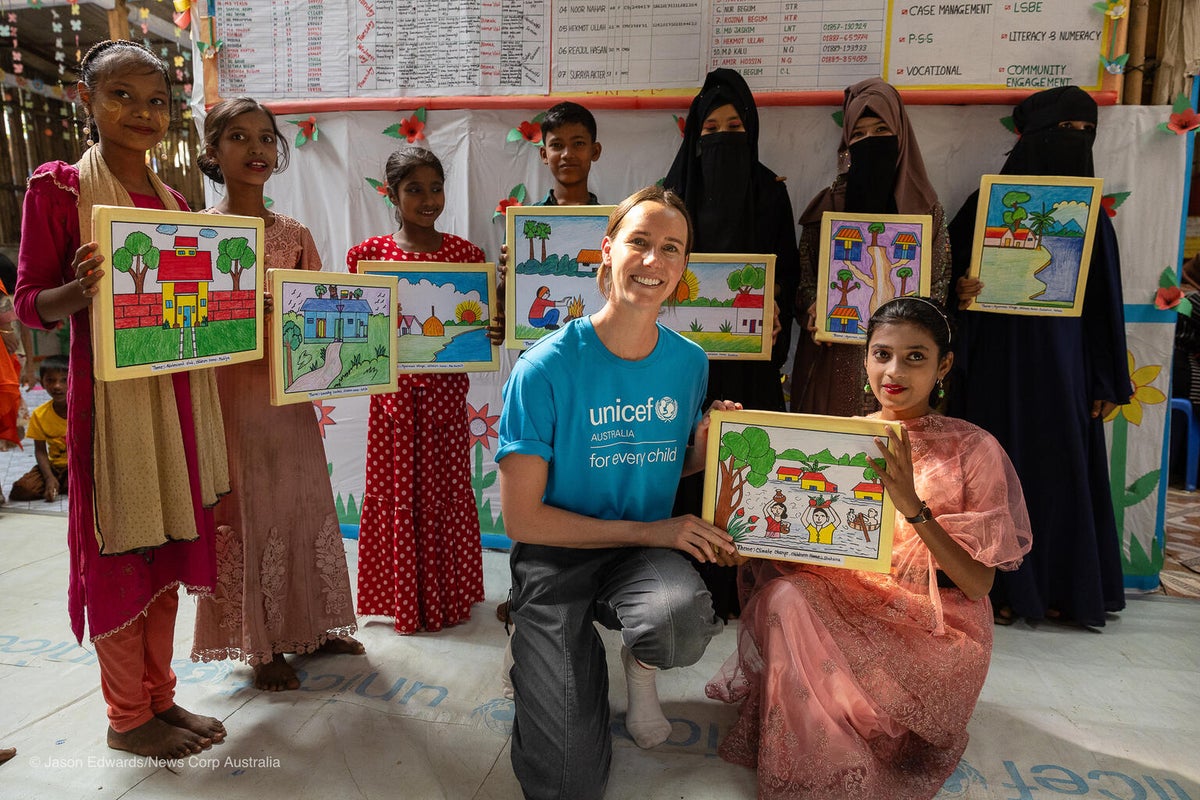
Waves of change: challenging gender stereotypes
Outside of the refugee camp in Cox’s Bazar, life is also challenging and adolescent girls are among the most vulnerable in the area – with limited education and burdened with adult responsibilities, they often face violence, abuse, and exploitation.
UNICEF, in partnership with the local organisation JAAGO, supports 300 girls through a local surf club, offering psychosocial support and life skills training. The project follows a sports for development approach and uses surfing to empower and equip girls for future challenges.
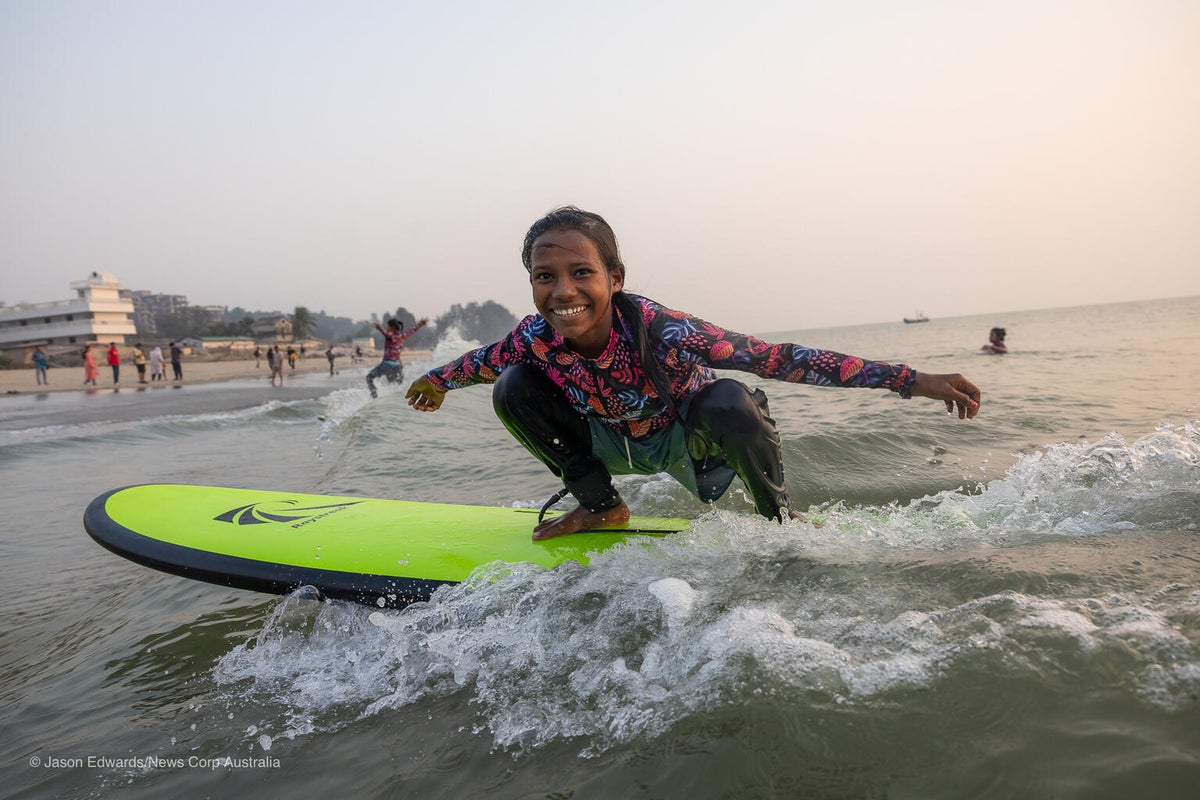
Beyond surfing lessons, this program also provides first aid and drowning prevention skills and raises awareness about gender-based violence and child marriage, while challenging gender stereotypes at the community level.
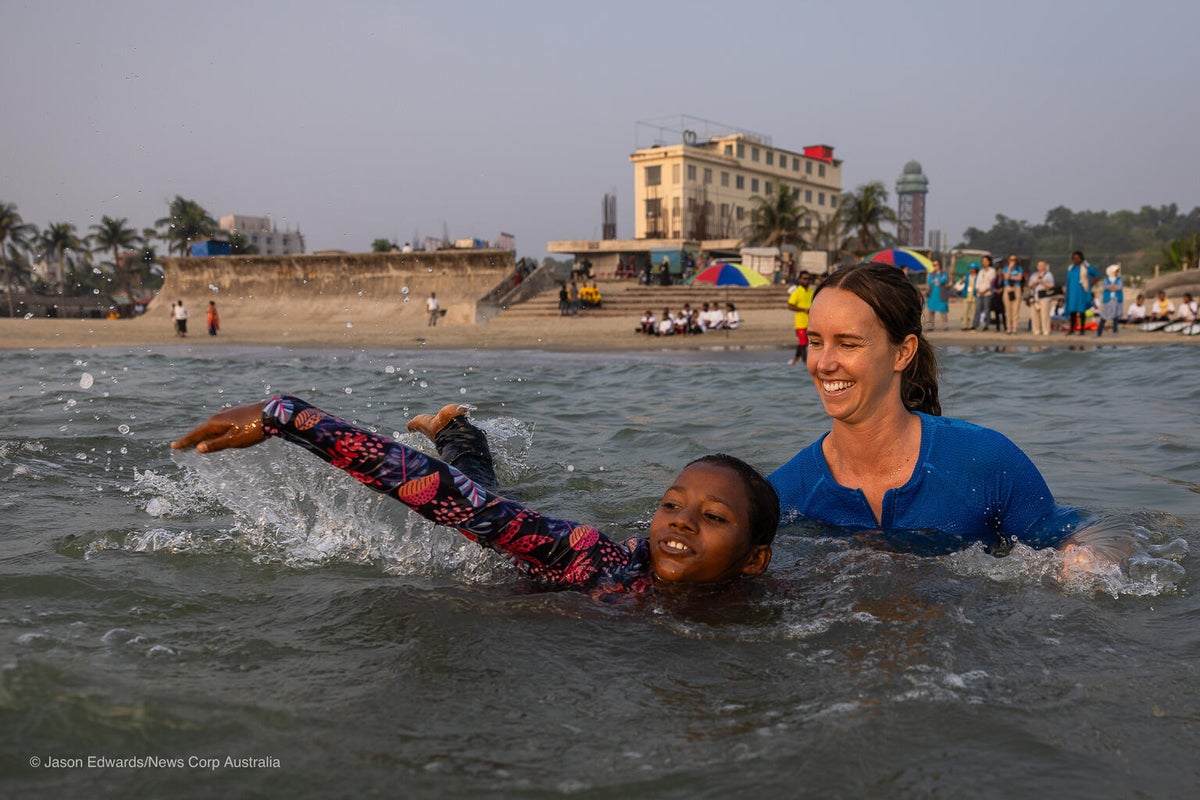
Let them play: the right to be a child
Despite improvements in recent years, child marriage remains prevalent in Bangladesh, with more than half of girls married before the age of 18. UNICEF’s commitment to child protection in the country is centered around the prevention of violence against children and women, and we work to mobilise entire communities to protect their most vulnerable – no matter what.
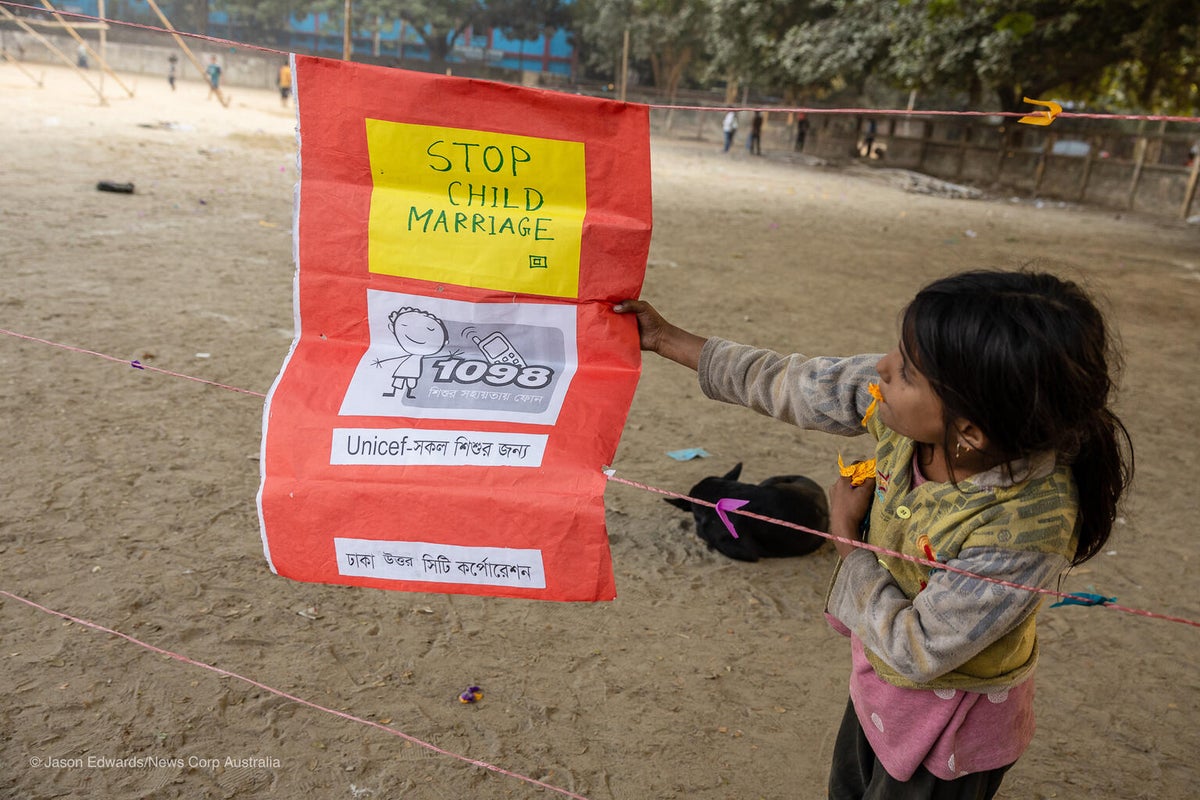
Across the country, the Child Protection Community Hubs (CPCH) have emerged as a gender transformative, community-led initiative designed to combat child marriage and other forms of violence against children and women. In one of the biggest informal settlements of Dhaka, Korail, which is home to more than 50,000 people, Emma participated in community-led activities with young girls, including sports for development and discussions around issues like child marriage and child labor.
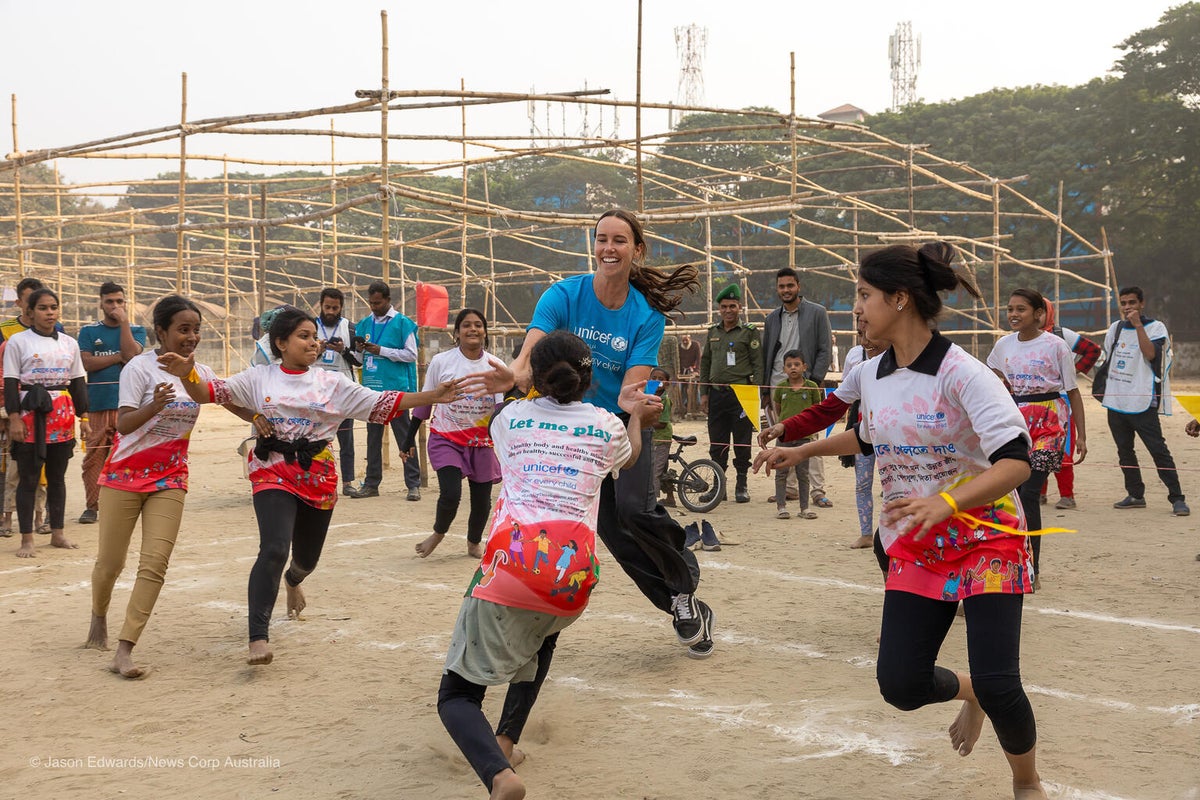
When you look at stats, they are just numbers, but my experience here [in Bangladesh] I've been able to meet children and see the smiles on their face when they're able to be in class or playing sports and learning new skills", Emma says.
During her visit with UNICEF, Emma saw the incredible work being done to support children, from education and lifesaving skills to child protection and access to clean water. But as an Olympic swimming champion, one issue unsurprisingly hits close to home: the heartbreaking number of children who lose their lives to drowning every day.
"These numbers shocked me. Although not all drownings can be easily prevented, the greatest tool a child can have is the ability to swim. Swimming has always been an important part of my life - I learned at a young age, and I believe every child, no matter where they are, deserves the same opportunity I was lucky to have."
Determined to create a ripple effect of change, Emma has set an ambitious goal – to raise $250,000 to fund programs that protect and empower children in Bangladesh.

Join Emma by donating today. Together, we can make an impact!
Help deliver safe drinking water, education and SwimSafe programs to children in Bangladesh.
Related articles
Stay up-to-date on UNICEF's work in Australia and around the world













